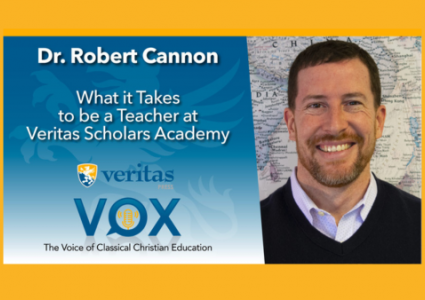Field trips, projects, and activities: Helping Students Reach for the Impossible

I remember the moment like it was yesterday. On a Spring day in March of 1979 the students from my high school boarded a bus for a day trip to Toronto, Ontario, Canada. There would be some sightseeing, but the main attraction was to watch the Broadway Tour production of Man of La Mancha starring Richard Kiley. I’m not quite sure why we were going to see that particular production because I don’t have any recollection of ever reading Miguel de Cervantes’ well-known classic, Don Quixote. All that I really cared about, it was a day out of the school to hang out with friends!
It is helpful to understand that small country schools like mine (K-12 in the same building; a graduating class of 30 students) did not charter tour buses in 1979. We rode the regular yellow school bus...with hard school bus seats that don’t recline...a four and a half hour ride one-way! But although I remember that fact, I don’t recall much of the ride. Neither do I recall any conversations or sightseeing events. No, the vivid memory came quite unexpectedly as I was trying to stay awake during the seemingly never-ending musical whose plot I was having difficulty following. My limited knowledge of Don Quixote was that of a crazy man who fought windmills. And, I didn’t see any windmills...and what were they doing in a prison cell?
Then it happened...that memorable moment! The entire theater was suddenly illuminated with blue and white lights when the spotlight glistened off the sapphire/diamond (probably cubic zirconia!) studded suit of armor worn by Richard Kiley as he sang the iconic song, The Impossible Dream! Instantly I was intrigued and more engaged in what was happening on the stage. It was my birthstone, the Sapphire...and my school colors, blue and white...and they were everywhere! It was as though a disco ball was lighting up a discotech!
From that moment on I watched and listened more intently. I began to understand that Don Quixote was telling a story to give hope to his fellow prisoners. Don Quixote, the man from La Mancha, takes his listeners, as well as the theater audience, through the entire spectrum of human emotions from laughter to tears, as he explores the noble themes of idealism and courage in the face of despair. And, The Impossible Dream became a song of inspiration that would run through my mind...and often sung in the shower! I still become a bit braver, and get a little choked up, when I hear it after all these years. That song moves my spirit!
What do you remember from school? Do you recall a moment that impacted you to be who you are today? It is very likely that a field trip, special speaker/activity, or group project helped you decide. You may have done something on your own outside of school after learning about a given topic. There is probably something in your life that sparked your passion or curiosity. It triggered an interest, or “turned on a light”, and motivated you to learn more.
Each student comes to the classroom from a different perspective formed by various world experiences. Students who have been exposed to many different things do better in school. A 2013 study by Jay P. Greene, University of Arkansas professor of education reform, found that art museum trips have an impact on student learning . In particular, “enriching field trips contribute to the development of students into civilized young men and women who possess more knowledge about art, have stronger critical-thinking skills, exhibit increased historical empathy, display higher levels of tolerance, and have a greater taste for consuming art and culture.”1 In order to be successful readers, students need to relate what they read to what they've experienced. To think broadly students need to have a variety of experiences.
As parents, teachers, and school leaders, we know that field trips, activities, and projects (FtAP) are important. The challenge becomes how to purposefully make them part of our regular school year plan and get everything accomplished. How can they become part of the core curriculum and not just an extra-curricular activity or distraction? Here are some suggestions:
Believe - a first step in any change is to believe it is possible. Chopped budgets and an increased focus on testing have made field trips increasingly rare. When I first began teaching at a classical Christian school, I was handed a form that was to be used to plan field trips for the upcoming school year. I must admit that I initially balked at the idea of spending too much time on field trips; I was busy planning for a new curriculum and new to the area...I didn’t have time! However, I discovered that appropriately planned FtAPs benefitted students, as well as me, and I began looking forward to this planning exercise each year.
Plan - As educators, we are all about planning. If it isn’t part of “The Plan”, it won’t get done; and, even if it is part of “The Plan”, it still may not get done! Take time to review your yearly teaching plan and look for opportunities to insert a FtAP to bolster student learning. Even though I wasn’t thrilled by the prospect of “losing class time”, this planning became a tool to improve my classroom teaching.
Prepare - FtAPs are often viewed as a way to take a break from learning, … especially by the students! It’s a day out of the classroom. This misunderstanding can be avoided by purposefully integrating the FtAPs into the curriculum plan. See them as an opportunity to expand the classroom. One event that can incorporate all FtAPs when studying American History is National History Day (NHD). NHD engages students and teachers in historical research and skills development such as critical thinking, problem solving, research, reading, and communication. It requires some careful planning, but there are numerous resources available. And, it can be integrated across the subject areas.
Integrate - It is helpful to use FtAPs as fodder for teaching and reinforcement in different subjects. A study of George Washington, for example, can coordinate your literature selections, writing assignments, geography studies, science experiments, vocabulary/spelling words, and possibly some math review. Students are able to engage with content in a variety of ways as concepts are presented through all different media and different modalities, They are able to access the content better when they can learn holistically. When they return to school, the trip that they took can serve as a touchpoint for an entire unit.
Time and money are often heralded as arguments against using FtAPs, especially field trips. And, to be honest, it will take both to deliver a quality experience. In fact, any worthwhile endeavor is going to cost some time and money. But don’t let it become an obstacle. It has already been argued that FtAPs will synergistically improve student learning. And, by engaging parents in the planning and execution, the teacher is not the Lone Ranger who is expected to save the day. In addition, cost does not have to be prohibitive. Building a network of families and businesses who care about student learning can provide donors who enjoy helping students in need or even provide opportunities to “earn” the cost to participate in the FtAP.
Veritas Press is committed to helping students learn well in the way they learn best. The impetus behind our school, classes, and resources is a belief that no child is the same. Every child has a unique learning style. We want to help you teach them how they learn best. Call or email today to schedule a free consultation to see how Veritas Press can help you and your student(s) dream the impossible dream...and to reach the unreachable star!
1The Educational Value of Field Trips, Greene, Jay P.; Kisida, Brian; Bowen, Daniel H. Education Next, v14 n1 p78-86 Win 2014.







